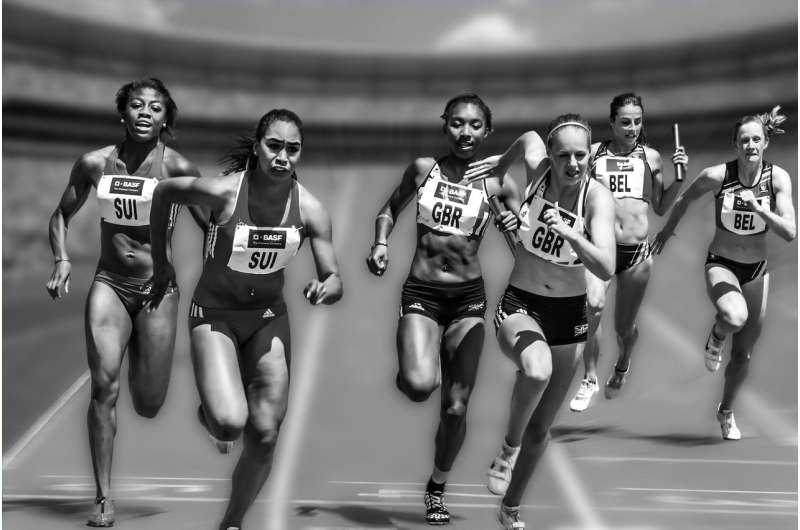
Achieving peak performance in competitive athletics requires a complex but delicate interplay of skill, physical conditioning, practice, precision, grit and passion. Sometimes, both external and internal factors such as self-doubt, pressure, anxiety and stress can interfere with an athlete’s performance or desire to play.
The Tokyo 2020 Summer Olympic Games, a series of events highlighting epic competitive prowess, stood as an opportunity for athletes to come together on the world stage to celebrate triumphs and successes amidst a backdrop of social, epidemiological and medical challenges to us all. However, the games also shed light on challenges that athletes have faced prior to this pandemic. Elite athletes such as Simone Biles, Naomi Osaka, Michael Phelps and Kevin Love have shared personal experiences and struggles with mental health challenges, and their stories highlight the importance of caring for the whole athlete, as the mind and body do not exist in silos. Recognizing this, sports medicine specialists at the Children’s Hospital Los Angeles Children’s Orthopedic Center commend these athletes and others for their self-awareness.
“The emotional and mental aspect of athletes’ lives, whether competing at an elite level or for a summer T-ball recreation league, are crucial and cannot be overlooked,” notes Bianca Edison, MD, MS. “For a very long time, athletes have been conditioned to push through physical pain, exhaustion and pressure in a ‘whatever it takes’ fashion because they have been brought up in an arena that celebrates winning more than well-being. But winning at all costs overshadows common sense, puts one at extreme risk, and robs athletes of the very joy of their sport.” She adds, “We cannot afford to forget to care for all of our athletes wholly, ones who are carrying our burden of social healing in the aftermath of psychological trauma experienced during these very challenging times.”
Athletes, no matter the age or skill level, often encounter pressure from coaches, parents and teammates. In the past, many in the sports world ignored mental and emotional health because they were not tangible like a sprained ankle or a broken arm. Now there is a greater awareness of these issues, and better mental health resources are available.
Knowing that a team approach to supporting the athlete is essential for optimal care and performance, the sports medicine specialists at Children’s Hospital Los Angeles work with local sports psychologists to help promote athlete self-care and wellness at its fullest.
“At CHLA, we focus on treating the athlete as a whole—the physical and the mental,” says Ryan Kelln, DO, FAAP. “Sports should be fun. We want to see athletes get out there and give it their all, but we also want to see athletes happy, feeling good and excited about what they are doing. If an athlete is in pain from a physical injury or if they are distracted or not in the right headspace to play, they are putting their bodies at risk.”
“When you look at Simone Biles, she sets the bar higher and higher with the level of difficulty of her routines and the moves she performs,” Kelln observes. “While it’s exciting to watch as a fan, we also need to realize the risk she’s taking to put her body through it. If she’s not in a good space all around physically and mentally, she’s really putting herself at an even greater risk for injury.”
What’s more, notes Edison, an athlete who isn’t in a good mindset is more inclined to pull out of sports altogether.
“We are facing a crisis of young athlete burnout,” Edison says. “The Aspen Institute found that the average child today spends less than three years playing a sport and has a high risk of quitting by the age of 11—mostly because the athlete doesn’t view the sport as fun anymore.” She also adds, “When an athlete starts to place a collective social responsibility of performance and perfection ahead of their responsibility to themselves, both physically and mentally, that athlete reaches a zero-sum game of achievement. We cannot put so much emphasis on results as opposed to an athlete’s well-being.” Athletes need to recognize that supporting their own mental health can be as much of a reason to pull back and focus on recovery as physical exhaustion, a muscle strain or injury—and athletes like Biles have brought that into the international conversation. While an athlete may be physically ready to compete, psychologically they may not.
Source: Read Full Article


